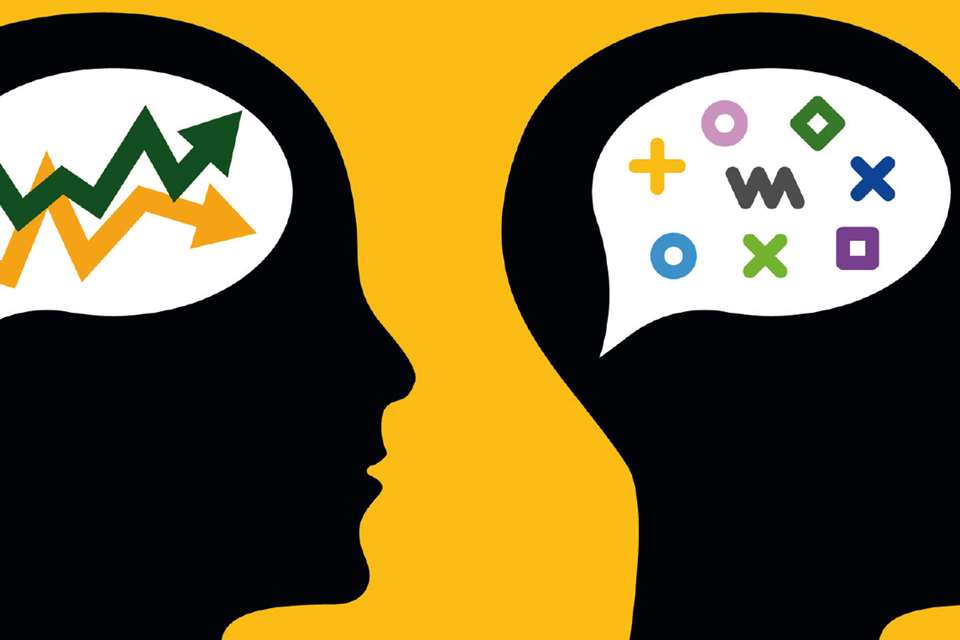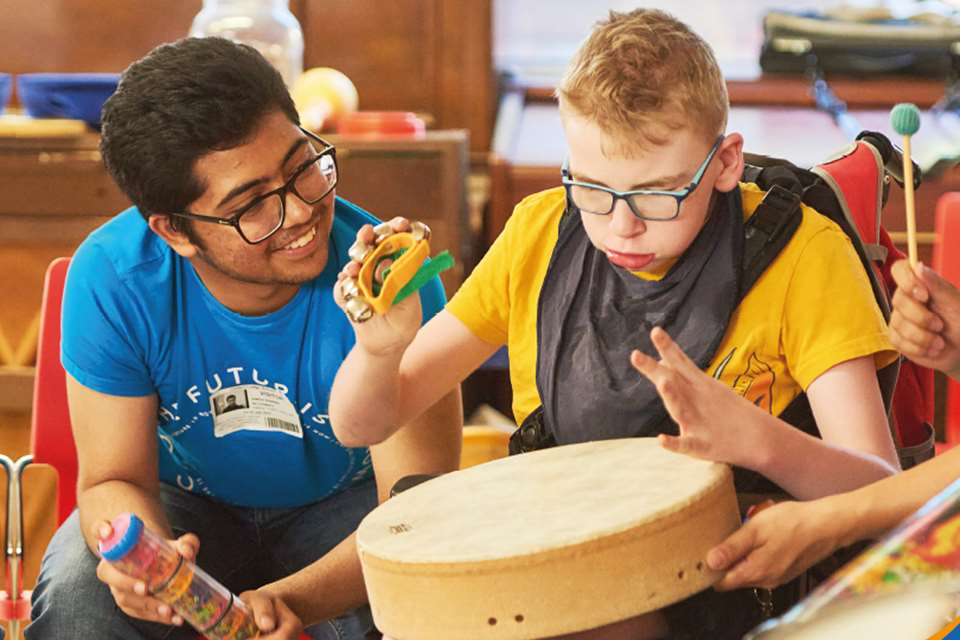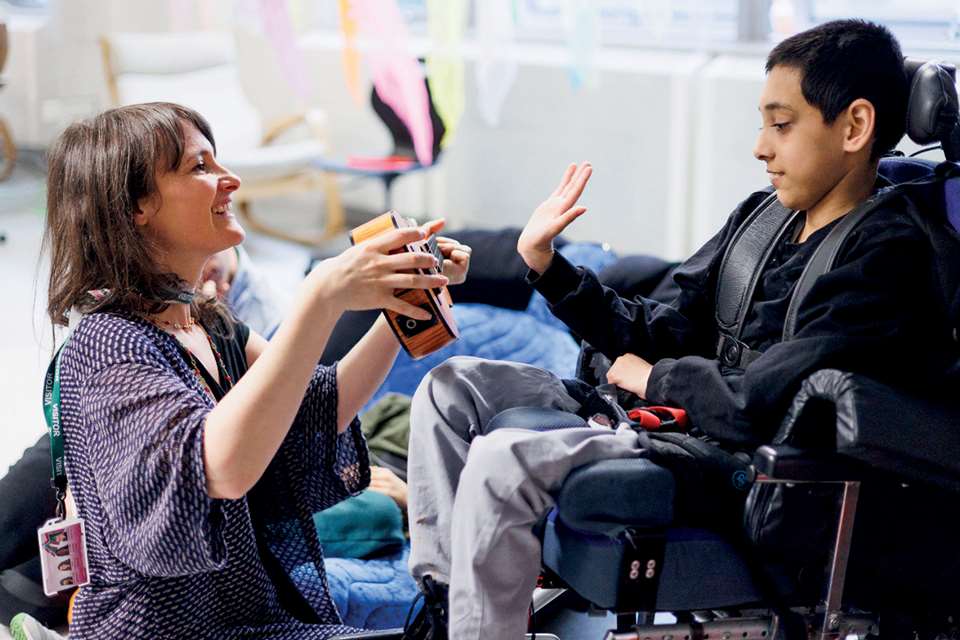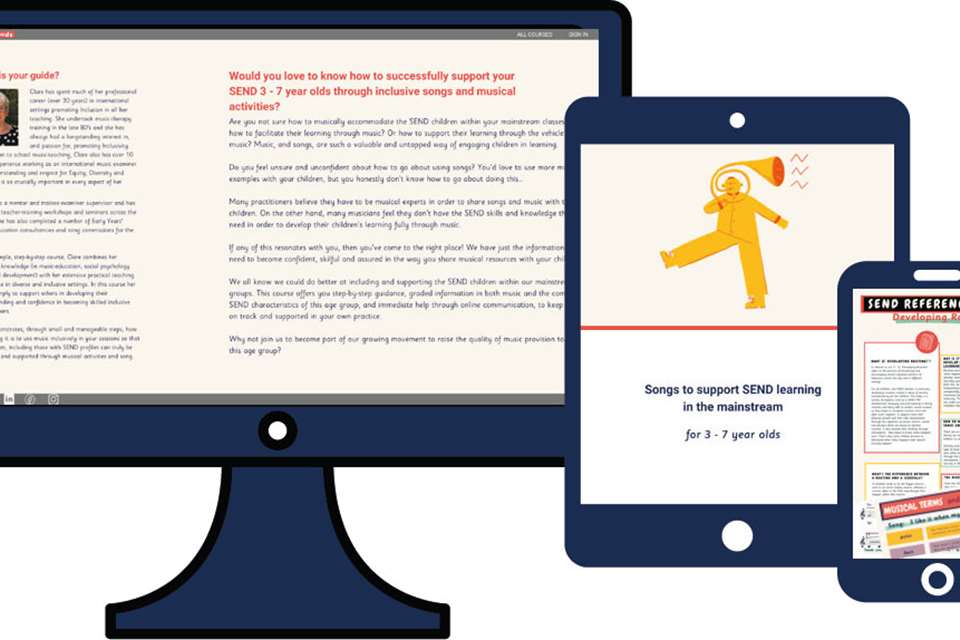Music and neurodiversity: understanding and adapting
Elizabeth Hetherington
Monday, January 1, 2024
Elizabeth Hetherington, a music teacher at SEND-specialist school More House, offers a range of strategies to create a more inclusive classroom for neurodivergent learners.
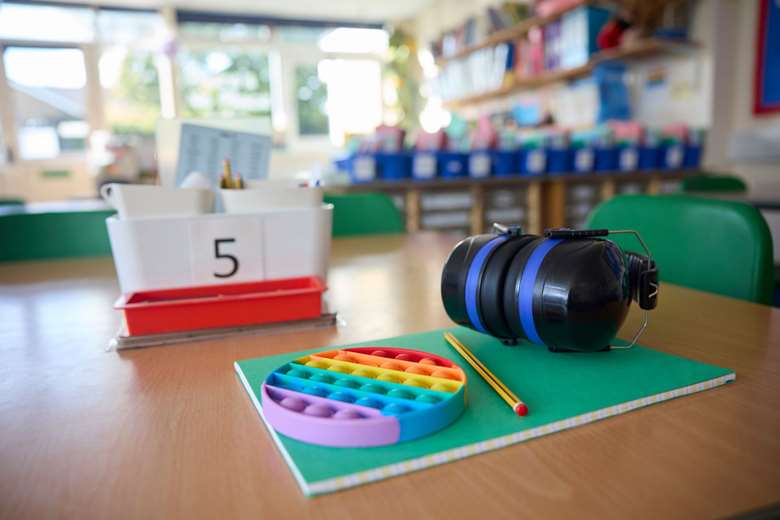
Adobe Stock / Daisy Daisy
Around 15–20% of the population is neurodivergent; as music teachers, we should embrace this within our professional practice. A skilful approach which targets this group of children will have benefits for all learners in the classroom. With increased awareness of all our pupils' strengths and barriers to learning, and some minor adaptions to the way that we teach, we can all aim to deliver an inclusive way of teaching and learning.
I am fortunate enough to work within the music department at More House School, Frensham. With nearly 500 pupils on roll aged 8 to 18, More House School is recognised as the largest SEND-specialist school in the UK. All pupils have identified SEND, and the majority hold an Education, Care and Health Plan (ECHP). The school does not offer one-to-one support or classroom intervention; there is a well-resourced SEND unit with qualified therapists who work with the boys in small groups, and nobody misses lessons to receive therapeutic support. Subject specialist classroom teachers adapt the way that teaching and learning takes place to support a neurodiverse class.
SEND learners
To understand why a pupil struggles to learn, it is beneficial to consider the process of learning and why some students might find this relatively straightforward. These are students who can pay attention, have good perception, can make decisions, socialise well, have good language and strong motor skills, good memory, strong logic, reasoning skills and, to top it all off, efficient processing speed. I do not imagine this list is exhaustive. We know the pupils who have this skill-set – they are the easy ones to teach! SEND learners have significant barriers to learning in some of these areas, and our awareness of this will help us to devise lessons that are more inclusive for our SEND learners.
Neurodiversity
The term ‘neurodiversity’ has become popular in the SEND world to describe a range of neurological differences, such as Dyslexia, Developmental Coordination Disorder, Developmental Language Disorder, Autistic Spectrum Condition (ASC) and Attention Deficit Hyperactivity Disorder (ADHD). The term was developed within the autistic community in the 1990s as a way of confronting the idea that autism needed a ‘cure’; it celebrates the differences within society in thinking, learning and communicating with others. Neurodiversity is a strength-based approach rather than a disability-based approach. Neurodiversity recognises that different learning difficulties have crossover areas of weakness. It challenges the understanding of a diagnosis or a label, focusing instead on the strengths and weaknesses of each individual learner. This approach is helpful in the classroom – because if we teach to the neurodiverse, we teach to all.
Being adaptive
Most of us are already good at adapting for our own needs. Some of us might struggle to begin a big project at work with a messy desk, so we tidy it; others might be bothered by the scratchy label in a new jumper, so we cut it out. How many of us turn the music down in the car to concentrate on parking? (Or maybe you don't, but your partner does, and it makes no sense why they do this!) This is all to do with our cognitive, learning and behavioural profiles, and finding ways to navigate our daily lives.
Adapting our teaching in the music classroom is the same sort of thing, except it is so much more difficult because there are so many people in there! We cannot adapt our teaching 30 times to suit the 30 individuals in the room; we must think about those common features of different diagnoses. We need to consider the shared barriers to learning that our students have, despite their diagnosis or diagnoses, and consider these within our planning and delivery of music lessons.
Autism
When we think of music and Autism, we might think of the savants, who develop incredible skill in the repetition of music. We might think Aspergers or low ability, difficult, rigid, lacking empathy or non-verbal. We might think of the pupil in the classroom who squeals with delight or fear when music is played. We may begin to imagine the child who needs to wear headphones to stay in the classroom. Many of these children struggle with language, which is often a barrier to learning.
Routines are helpful for autistic learners, as they are for most learners. With singing, try to develop a predictable routine that not only warms up the vocal cords but also prepares the learners. Explain to the children what they are going to do and give them some sense of timings. Many SEND learners struggle with the concept of time, and some struggle because they don't understand they will not be singing all day. Consider having a countdown clock on the board for different activities.
Music is full of abstract language, so we must be conscious of how we speak to our learners. Try to use direct language and explain abstract or figurative language. Quite often, autistic learners may challenge our patience and, at times, appear rude. Don't take offence; instead, be kind and explain.
Consider the classroom environment: is it tidy and organised? This does help our learners and minimises sensory difficulties. Offer headphones that pupils can help themselves to if required. Help learners develop their own strategies in the classroom, and help them to take autonomy and control. It is important for many autistic children to maintain a sense of control; as teachers, we should try to recognise this and facilitate it in lessons. We should try to find opportunities for pupils to choose material studied in lessons; many students appreciate a fair system by which, as a class, they are able to choose their class song. Any system, however, must be fair and will be scrutinised by those learners who are rule-bound.
ADHD
These children have disordered attention spans – disordered, not weak. Sometimes their attention to detail can be exceptional, but it is not consistent. We cannot expect them necessarily to be able to concentrate on the work that we set them in a consistent manner. We should be careful with our language and must try to avoid lengthy verbal delivery. Use direct language and keep verbal instructions short and precise.
Be creative with children who struggle with attention. They might enjoy you taking objects in to show them or telling funny stories. Take them outside or make them move. Allow them to move with the music or jiggle around; it really can help them. Enable pupils to explore strategies to help remain focused; this empowers them to take ownership of their learning. The clock that helps our ASC learners will also be helpful for the ADHD learners. Try to use competitions and rewards as motivation to work.
Follow behaviour rewards and sanctions appropriately and consistently; leave no doubt as to your expectations. Music is fun and music lessons should also be fun.
DLD/DCD/Dyslexia
Developmental Language Disorder (DLD) often goes unnoticed and can be confused with other diagnoses. Children will often hide their difficulties; they might nod at the correct times when you explain something, or smile in recognition. Or they might struggle and behave in an unacceptable way. Some might understand what you say but cannot express their thoughts through language. As you might imagine, their predominant barrier to learning is likely to be language.
Children with Developmental Coordination Disorder (DCD) also share many barriers to learning as other SEND learners and, above all, benefit from patience and understanding. Sometimes, it can be helpful to guide a child with DCD in choosing a suitable instrument that might play to their strengths rather than weaknesses in motor skills. However, first and foremost, listen to the child if they say they want to play a specific instrument. The determination to succeed will far outdo many of the difficulties they might face in the process.
Dyslexia is a Specific Learning Difficulty which primarily affects reading and writing skills. It concerns the way that information is processed. Sequencing, organisational skills, language and remembering are impacted by Dyslexia, making learning difficult and, at times, frustrating. Be patient, be kind, chunk the information and give clear instructions. Assume that poor behaviour is a pupil trying to communicate how difficult they are finding the task.
Aspirations and expectations
As teachers, it is important that we maintain ambitious expectations for all our students despite their difficulties. To compromise on this outlook risks the progress of our learners. Some students will not make the progress they can because somewhere along their development, someone has tried to put a cap on their potential. This is usually well-meaning, to prevent potential future disappointment; however, the determination and hard work from the student (which we, as teachers, are trying to cultivate) can and will defy all expectations.
As music teachers, we are given exclusive insights into the world of a SEND learner. Music is a universal language and can and should be a way to connect with some of our most challenged and challenging pupils. SEND learners really need to trust you, and time should be spent nurturing the relationship between teacher and pupil. Many SEND pupils are already self-critical, and our job should be to help them find strategies to develop and flourish.


